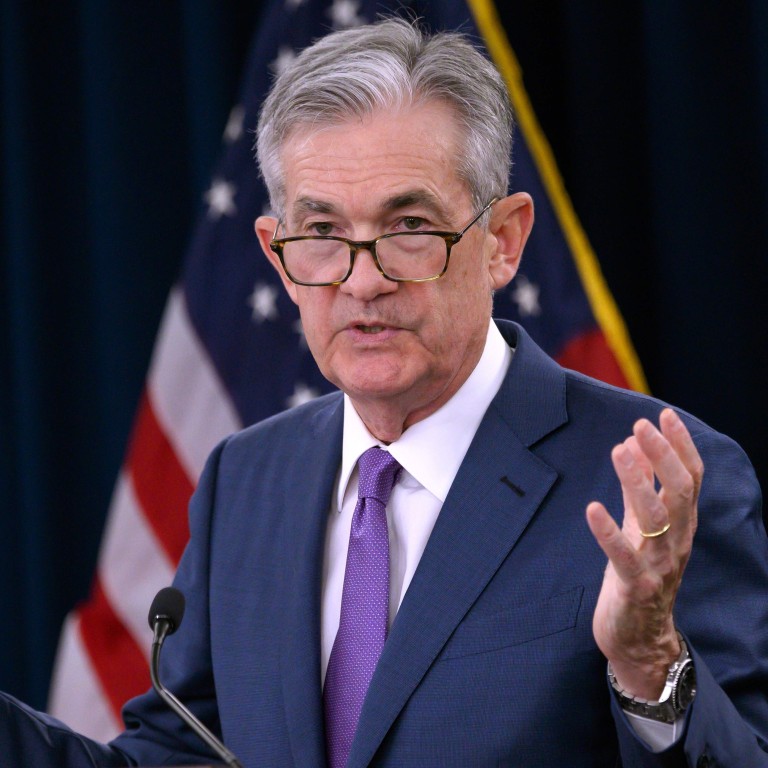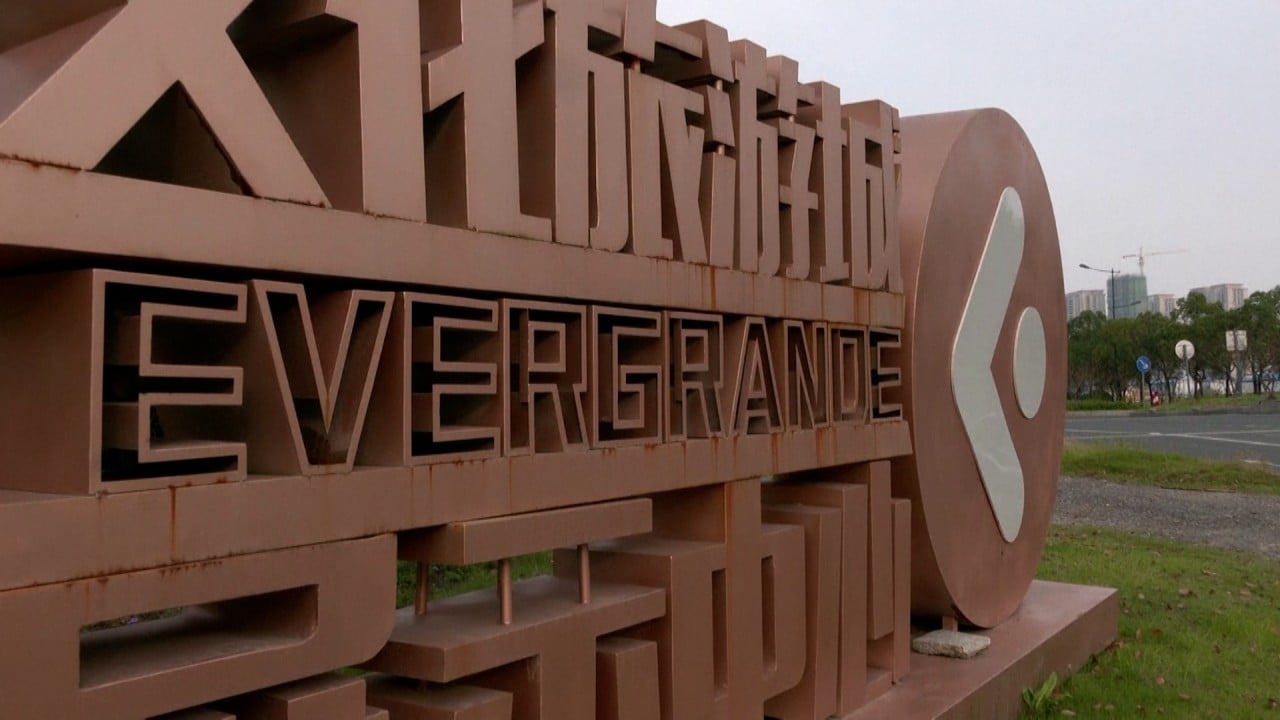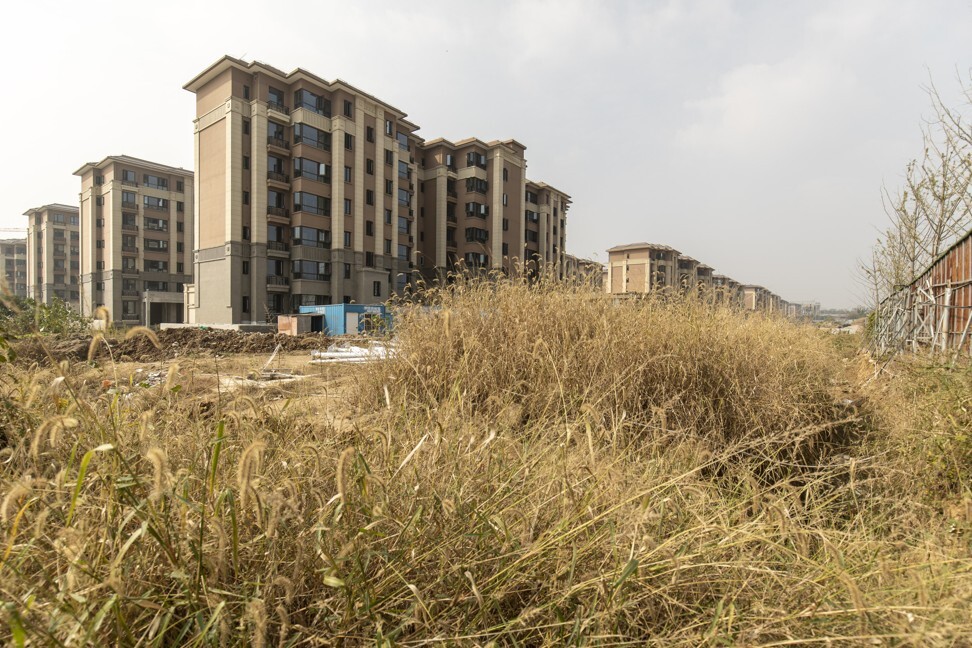
US Fed warns China property sector stress could pose ‘risks’ to American economy
- Ongoing scrutiny by Beijing of corporate debt could stress highly indebted companies, spillover to financial firms, Fed says
- Given size of its economy, stresses in China could strain global financial markets, US central bank says
“Given the size of China’s economy and financial system as well as its extensive trade linkages with the rest of the world, financial stresses in China could strain global financial markets through a deterioration of risk sentiment, pose risks to global economic growth, and affect the United States,” the Fed said.
The statement came about two months after Fed chairman Jerome Powell downplayed the potential risk of contagion from Evergrande at a press conference, saying the Evergrande situation “seems very particular to China”.

01:46
World’s most indebted developer, China Evergrande Group, buys time to repay more creditors
Evergrande, China’s biggest builder of homes, has struggled under the weight of 1.97 trillion yuan (US$308 billion) in total liabilities and missed several interest payments on its offshore debt in recent months, fuelling concerns about high debt levels in the property sector.
Even as concerns are growing, some investors are buying into Chinese property sector debt as it has sold off sharply in recent months.

China regulatory and property risks were cited as one of the top three risks to US financial stability over the next 12 to 18 months by market professionals surveyed by the Fed staff, outpaced only by persistent inflation and vaccine-resistant variants of Covid-19. The Fed conducted its survey of 26 market contacts between August and mid-October.
Market participants also cited concerns about the potential escalation of US-China tensions as another risk that could destabilise markets, particularly surrounding Taiwan.
The Fed separately warned that adverse developments in other emerging markets economies spurred by a sharp tightening in interest rates could also spill over to the US.
“A sharp tightening of financial conditions, possibly triggered by a rise in bond yields in advanced economies or a deterioration in global risk sentiment, could push up debt servicing costs for EME [emerging market economy] sovereigns and businesses, trigger capital outflows, and stress EMEs’ financial systems,” the central bank said.
“Widespread and persistent EME stresses could, in turn, have repercussions for the US financial system through its direct exposures to stressed EME businesses and sovereigns and through its indirect exposures via US businesses with strong links to EMEs.”

